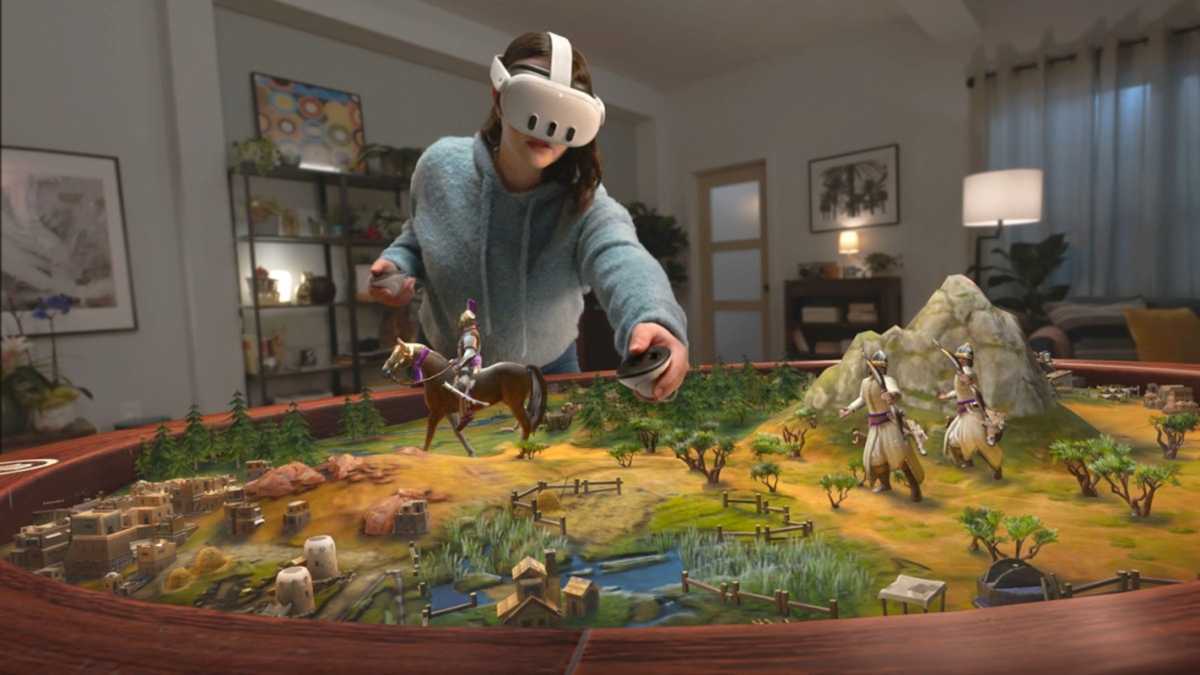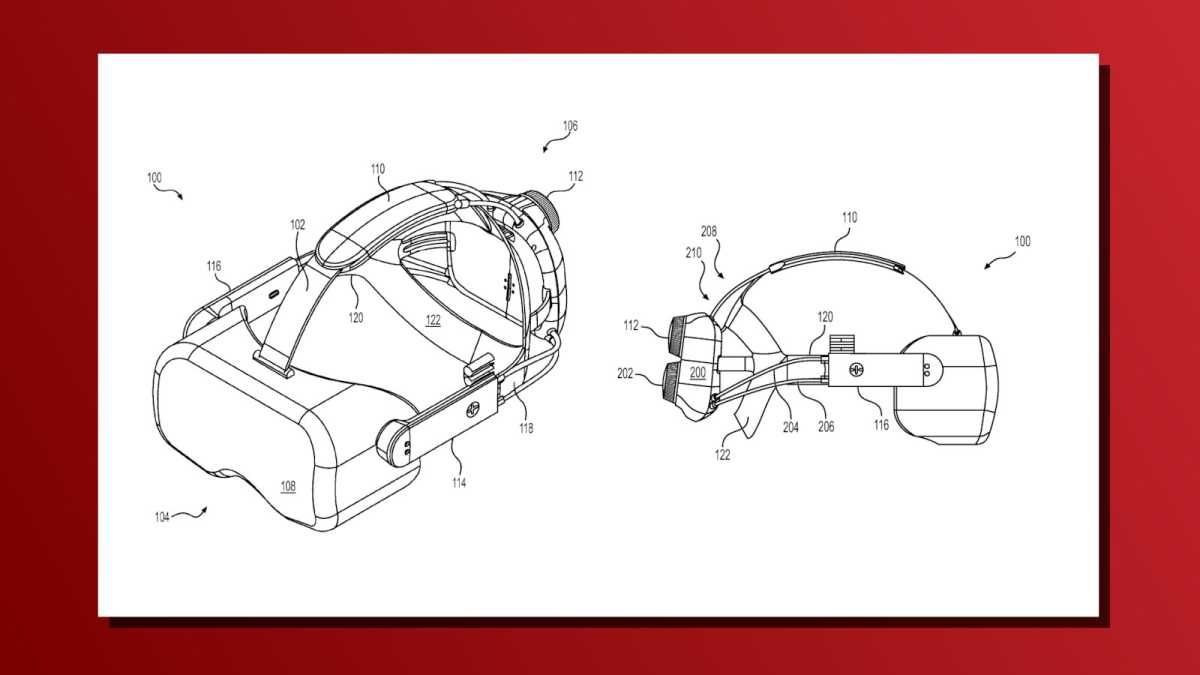I’ve always loved the idea of VR gaming. It’s a fascinating technology, and there are some experiences that just can’t be had without a VR headset. But VR gaming as an industry is struggling in 2025. Gamers and game developers are largely reliant on Meta’s Quest platform, and Meta is neglecting VR gaming while in pursuit of the metaverse.
The only plausible challenger? Valve, who breathed life into the handheld PC gaming space with the Steam Deck. Valve is the only company with enough influence and resources to do the same thing—and if Valve’s long-rumored Deckard headset lives up to its potential, us VR gamers might finally get what we’ve been hoping for so long.
The rise (and slide) of VR gaming
The Oculus Rift launched over a decade ago in 2012 as the first big consumer VR headset. Oculus was then acquired by Facebook in 2014. Facebook was willing to pour money into VR headsets at the time, which led to the Oculus Quest line of headsets becoming the most popular line of gaming VR headsets—and that still holds today.
Meta
You can play games right on the headset, or you can plug it into your PC and use it in conjunction with your PC’s graphics card, or even stream VR games wirelessly from your PC to the headset. Meta’s Quest headsets beat the competition, no contest. Microsoft’s line of Windows Mixed Reality headsets are a historical footnote and the HoloLens is dead. Meanwhile, I still roll my eyes at the Apple Vision Pro, which costs $3,499 and can’t even play Beat Saber? No thanks! I’ll stick with the Meta Quest 3S that starts at $299. Keep your overpriced hunk of junk, Apple.
Yet while Meta’s headsets are the undisputed leader in market share, Meta is faltering as the de facto steward of VR gaming. The future of VR headsets looks shaky—and it doesn’t help that the hype has shifted from the metaverse to AI. Yep, now it’s not about having a 3D Mark Zuckerberg avatar floating in a void; instead, the future will involve an AI-generated Mark Zuckerberg floating in that same void.
Meta is squandering the VR gaming space
From what I can tell, Zuckerberg truly was personally excited about virtual reality and “the metaverse” as it was later dubbed. That’s one reason why Facebook (and now Meta) willingly sunk so much money into it. He honestly thought it would be “the next big thing.” But the metaverse hasn’t quite taken off like he hoped, with his thunder stolen by the likes of AI. Is it any wonder why Meta making cuts to its Reality Labs division?
Part of the issue is that Meta has mainly pursued “metaverse-style” experiences like Horizon Worlds rather than delivering a robust platform that game developers trust enough to invest in. Many VR game developers are facing declining sales on Meta’s store and struggling to sell enough games to survive. In fact, game developers as a whole are losing faith in VR as a gaming market.

2K Games
As Owlchemy Labs CEO Andrew Eiche told UploadVR: “I think [Meta] made a video game console and they want a general computing device.” Other developers, who wished to remain anonymous, made statements like “Meta is not interested in being a gaming platform anymore. They just want to be a metaverse, and they just happen to have a legacy store.” and “It feels a bit like Meta has seen the [Meta Store] data and is keeping it as a legacy option rather than the future of the platform.”
All of this points to how Meta is mishandling the Meta Store, where it increasingly prioritizes its “Horizon Worlds” experiences—many of which feel like clones of actual existing games—on its search results pages, pushing down other games and software created by other developers. The future of Meta looks free-to-play and not necessarily about games.
With increased competition in VR headsets, from the Apple Vision Pro to Google’s Android XR project and Samsung’s Project Moohan, Meta will probably lean even further away from games. Nobody seems to think there’s any money in VR gaming… and it’s playing out like a self-fulfilling prophecy. VR gaming is dying because it’s being neglected.
The VR version of a Steam Deck?
The Valve Index VR headset came out in 2019 with a price tag of $999, and it had to be tethered to a PC. It was really good for the time, and with it Valve proved that they had what it takes to deliver high-quality VR gaming hardware. Later, with Half-Life: Alyx, Valve proved that they could deliver high-quality VR games, too. (The Lab is another fun Valve VR experience that was impressive back in 2016 when it launched.)

Valve
But Valve hasn’t made any moves in VR since then. Instead, we got the Steam Deck, which transformed the handheld gaming space. The Steam Deck isn’t just awesome hardware—it runs the Linux-based SteamOS operating system with excellent compatibility with Windows games. That’s a massive accomplishment that isn’t talked about enough.
The Steam Deck was also impressive because Valve delivered something people actually wanted. Microsoft never really cared about the handheld gaming experience on Windows PCs until Valve started eating into its market share with the Steam Deck. Valve lit a fire under Microsoft’s seat, and the latter now appears to be getting a little more serious (even if Windows-based handhelds are still pretty lackluster).
That’s the same kind of innovative fire that we need in the VR gaming space. With Meta dropping the ball, could Valve take it and run?
How Valve could save VR gaming with the rumored Deckard headset
Valve’s Project Deckard has been the stuff of online rumors for a long time, but those rumors have ramped up recently. Earlier this year, a leaker claimed that Project Deckard may be on the way by end of 2025.
I don’t want to get lost in too much speculation, but here’s the picture that’s emerging: a high-end VR headset made for gaming, one that can be completely standalone just like a Meta Quest headset so you can play without plugging into a PC. It’s extremely compelling.
And the reason it’s compelling? Not only did Valve prove themselves with the Index, and not only did Valve make enormous waves with the Steam Deck, but Valve cares about gaming in a way that Facebook—the company that once flooded social feeds with FarmVille—doesn’t.

Joel Lee / Foundry
Valve also has Steam, which is a huge asset. In a world where VR game developers say they’re facing sliding game sales on the Meta Store, and in a world where so many interesting VR games just aren’t getting made because the future looks grim, Valve could revitalize it all if they made a concerted push for VR games on Steam—complete with a Steam Deck-style “you don’t need any other hardware, just buy this one device” experience. You know, the thing that made Quest headsets so good.
Hardware aside, this could unleash a new wave of interesting VR games and revive the industry, or at least keep it going as a sustainable platform for geeks like myself who find it pretty cool. Just like handheld gaming PCs before the Steam Deck, gaming VR headsets are being largely ignored by companies. Valve has a massive opportunity here.
We don’t really know, though. Valve is almost certainly experimenting with a variety of products in house, and the company hasn’t actually announced anything official about Project Deckard. But I hope they do! The VR gaming industry needs something like this, and Valve is the most credible company that could deliver results.
I like VR gaming, not the metaverse
Many people still aren’t interested in virtual reality. I get it. I don’t want to wear a VR headset for extended periods of time, and I don’t want to live in the metaverse. I’ll happily play AAA games like Doom: The Dark Ages on my gaming PC, and I certainly don’t want to work while wearing a VR headset, even though Windows 11 now supports that.
But I do think VR gaming is cool. There’s nothing quite like Beat Saber. It takes me back to the Dance Dance Revolution craze from my teenage years! There’s something special about VR as a gaming technology even if the technology isn’t quite there yet. So I hope Valve picks up the ball and runs with it—someone definitely needs to.